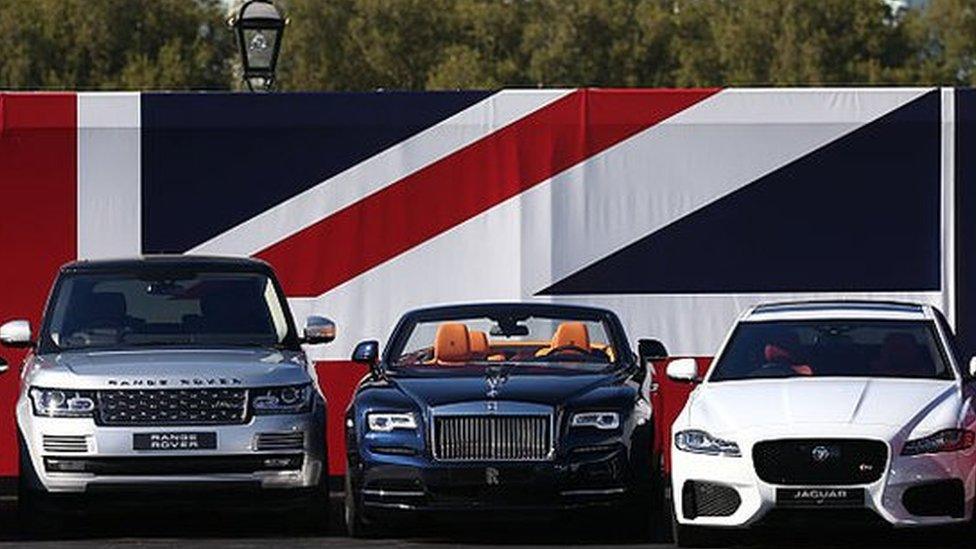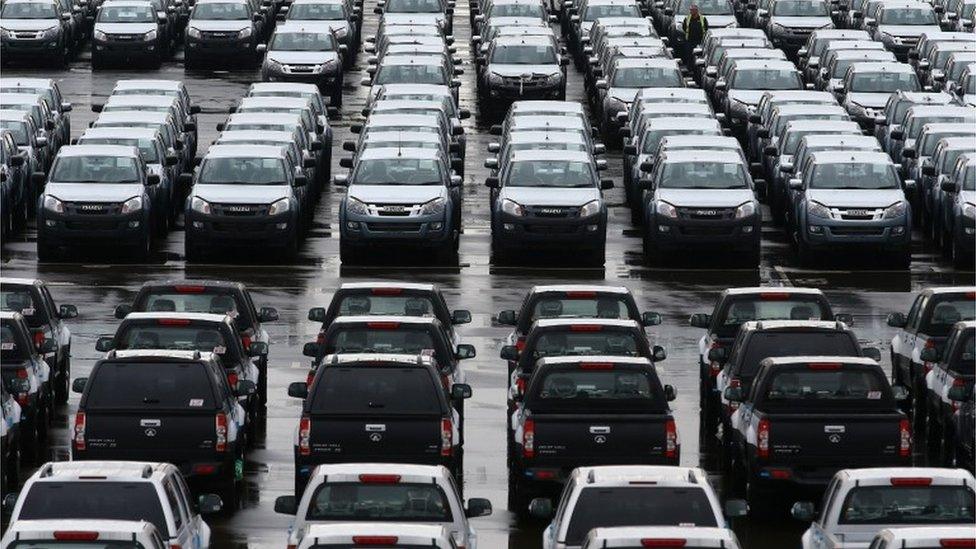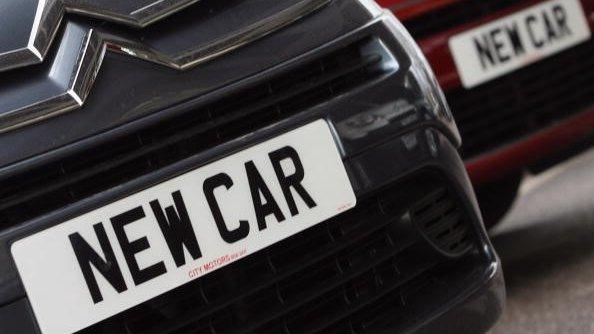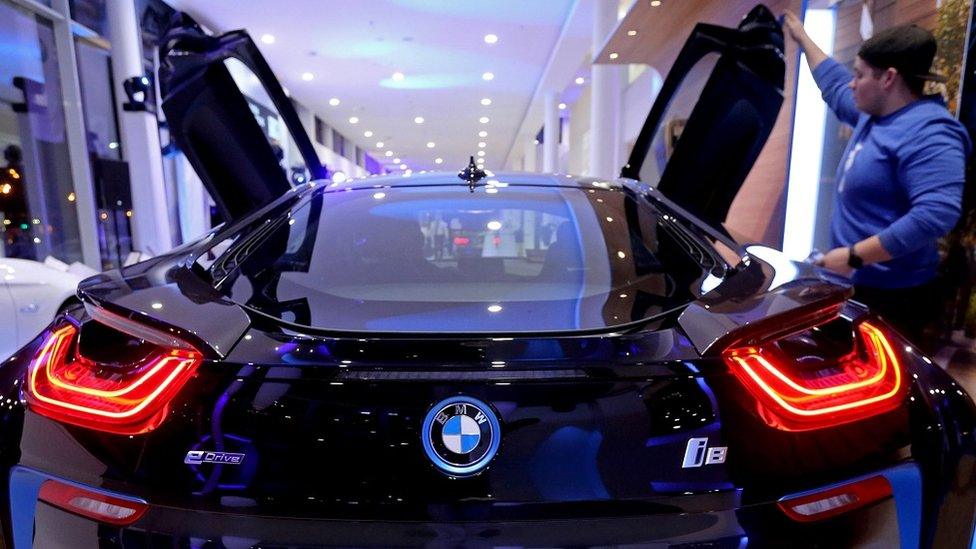UK car industry slows investment, says SMMT trade body
- Published

Investment in the UK's automotive industry fell in 2016 after several years of strong growth, according to the head of the industry's trade body.
Some investment decisions are also on hold until there is clarity about the UK's post-Brexit trading arrangements.
Mike Hawes, chief executive of the Society of Motor Manufacturers and Traders, was giving evidence to the Treasury Committee on Tuesday.
He told MPs that investment appears to be falling back.
"We are putting together the data as best we can," he said. "But I sense certainly that the amount invested over the last 12 months will not be as high as the preceding one, two, three years."
He said that despite the decision taken by Nissan in the autumn to build two new models at its Sunderland plant, other companies appeared to be holding off key decisions.
"Certainly, I believe that companies are at least sitting on their hands... until there is a bit more clarity," he said.
UK car production has grown sharply in recent years on the back of record investment.

Investment in research and development hit £2.5bn in 2015. That was up 8.7% on the £2.3bn invested the year before, according to the SMMT's 2016 Automotive Sustainability Report.
Last year several firms set out investment intentions that will secure and create jobs in the years to come.
Certainty needed
In October, Nissan confirmed it will build both its new Qashqai and the X-Trail models at its Sunderland plant following "support and assurances" given by the government.
Aston Martin also confirmed plans to build its new luxury car at St Athan, south Wales, with the creation of 750 jobs.
In light of Nissan's decision, Mr Hawes was pressed on why we had not seen investment decisions go against the UK despite the current uncertainty around Brexit.
"It was great news that Nissan did commit there," he said. "Each individual manufacturer will be in a different position. You can't draw too many conclusions from one manufacturer."
Mr Hawes told MPs that carmakers weighing up investment decisions today would be looking at starting production in about four years. So, they would be considering the likely trading and costs conditions in 2021.
"If the government can give some sort of assurance that it will be looking over those sort of timescales to give as much certainty as it can give in uncertain times, that will be much better received" he said.
Foreign investment
Tony Burke, assistant general secretary of the Unite union, said: "Dozens of decisions, including new models to UK plants, must be made in the coming months. These crucial investment decisions will determine the future of the UK's car industry and wider manufacturing supply chain.
"While many workers voted to leave the EU, they didn't do so to be out of work or see their living standards suffer and rights at work torn up through a hard Brexit.
"The government needs to give the UK automotive industry certainty to unlock investment and ensure it continues to be a world leader."
News of a fall in investment reflects anecdotal evidence emerging in the sector, according to David Bailey, professor of industrial strategy at Aston Business School.
"The Brexit vote leaves considerable uncertainty over the nature of the UK's trading relationship with the EU," he said.
"That uncertainty has the potential to impact on foreign investment in the UK auto sector, especially when auto firms are looking to replace models.
"Plants and jobs could be at risk if that uncertainty isn't 'nailed down' as quickly in the form of clear parameters for a trade deal - and preferably one that is as close as possible to existing single market arrangements."
You can follow John Moylan on Twitter at @JohnMoylanBBC
- Published5 January 2017

- Published9 January 2017
